Five patients a week approach Dr Charlie Teo, but he cannot help
Celebrated brain surgeon Charlie Teo has been unable to operate in Australia for over a year. In that time, hundreds of patients have begged for him to help them — some have died waiting. But Dr Teo’s hands are tied, and he is filled with “helplessness” for those he believes he could have saved. Read his emotional plea.
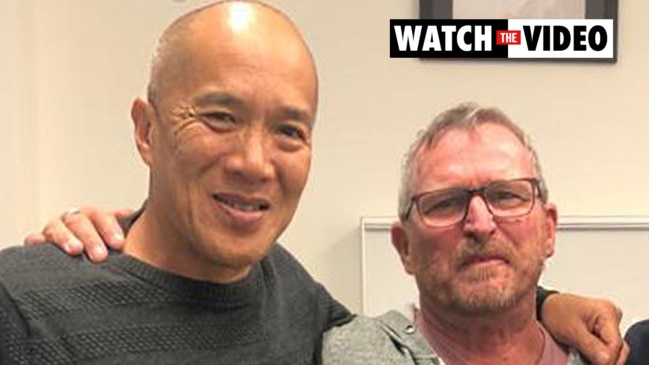
It’s been 15 months since world renowned neurosurgeon Charlie Teo operated in Australia despite hundreds of patients — many diagnosed with aggressive terminal brain cancer — pleading for him to help them.
Dozens of families have contacted The Sunday Telegraph, desperate for the expertise of the neurosurgeon, who is reluctant to take their cases if he can’t then do the surgery on Australian soil.
Some have travelled across the globe for his help after surgeons in their own countries have been unwilling to perform these complex operations. One devastated woman, who asked not to be named, revealed she contacted Dr Teo’s Sydney office after being told by several neurosurgeons her son had no chance of survival.
The response she received was the final devastating blow – the “one person who could give hope” could not speak to her. Her son died two days later.
Dr Teo was contacted by The Sunday Telegraph and, due to investigations by the Health Care Complaints Commission (HCCC), reluctantly agreed to give an exclusive limited interview this week revealing the “helplessness” he is feeling knowing that he can’t aid the people contacting his offices daily – the people he knows he could potentially give a second chance at life when no one else is willing.
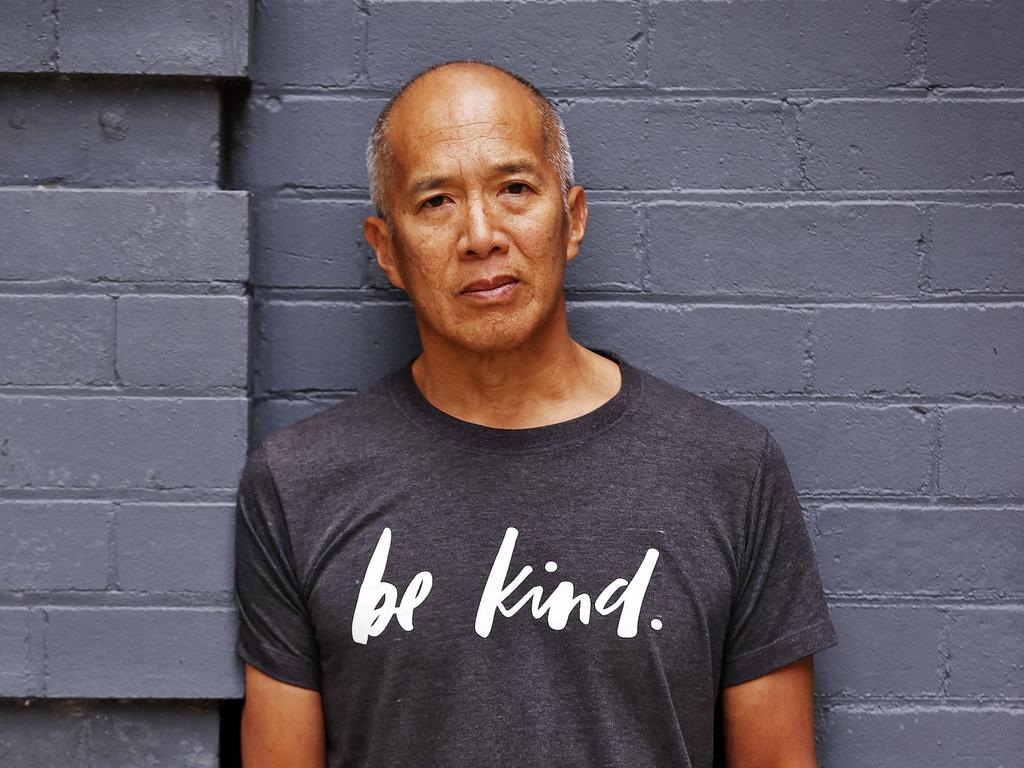
The strain has clearly taken its toll physically and mentally on the Member of the Order of Australia honour recipient.
“It’s very difficult not to get an overwhelming feeling of frustration and sadness when they’re crying on the phone, saying ‘We just want your opinion, my son’s dying’,” Dr Teo said.
“And, you know, quite conservatively, at least five patients a week could be cured, or their lives could be extended, with further surgery.
“I think the worst thing that’s come out of my persecution by jealous colleagues and vilification by a particular media outlet, is the fact that this has sent a very clear message to young and innovative neurosurgeons who may have been willing to step outside the box.
“The message is loud and clear that, if you offer contrary second opinions and don’t toe the party line, we’ll come gunning for you.
“Since I have been unable to offer my services to the Australian public, I’ve referred several patients to colleagues who I believe have the skill and compassion to help. Sadly, their colleagues or, even more disturbingly, their hospitals have deemed the proposed surgeries too risky.”
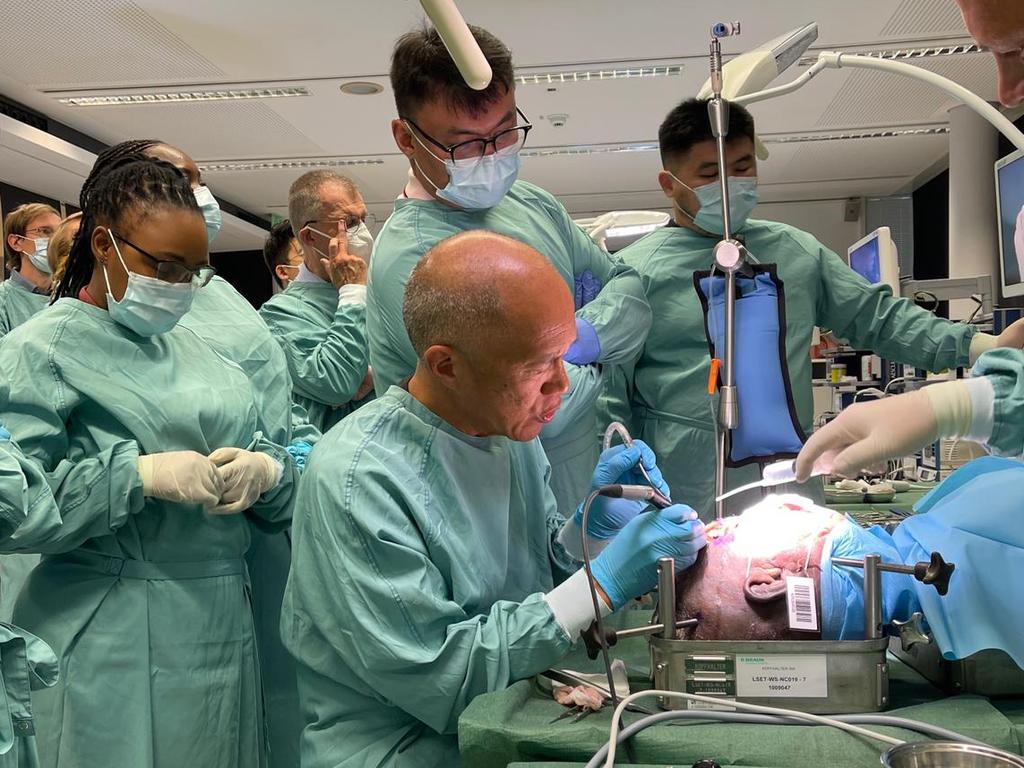
The Medical Council of NSW has banned Dr Teo from performing high-risk surgeries without the written approval of a second independent neurosurgeon. The restrictions will remain in place until a hearing later this year.
Dr Teo was more than willing to accept the terms, however qualified neurosurgeons have been reluctant to take on the role of independent reviewer, meaning effectively he cannot perform those lifesaving operations in Australia.
The Sunday Telegraph understands a Queensland-based neurosurgeon who meets the criteria was prepared to take on the role but the council rejected this on the basis he worked interstate.
There is nothing in the conditions that says the council-approved neurosurgeon needs to be in NSW – only that the doctor needs to hold current specialist registration as a neurosurgeon with the Medical Board of Australia and have at least 20 years’ experience as a registered specialist neurosurgeon.
The Medical Council of Australia would not be drawn on the Queensland doctor’s rejection, pointing the Sunday Telegraph to websites that detail the supervision policy.
A Medical Council of NSW spokeswoman said: “By law, the council cannot provide information about an individual practitioner or ongoing investigations unless it is information that is publicly available. The Council cannot make any further public comment at this time.”
Dr Teo says he has consistently offered to do surgery in the public system at no charge for public patients both before and after the Medical Council restrictions. Yet he has been denied the right to operate.
Many families have spoken out, telling stories of travelling abroad to seek the services of Dr Teo. Others told of their fears that, should their cancer return and they again need surgery, Dr Teo’s services won’t be accessible in Australia.
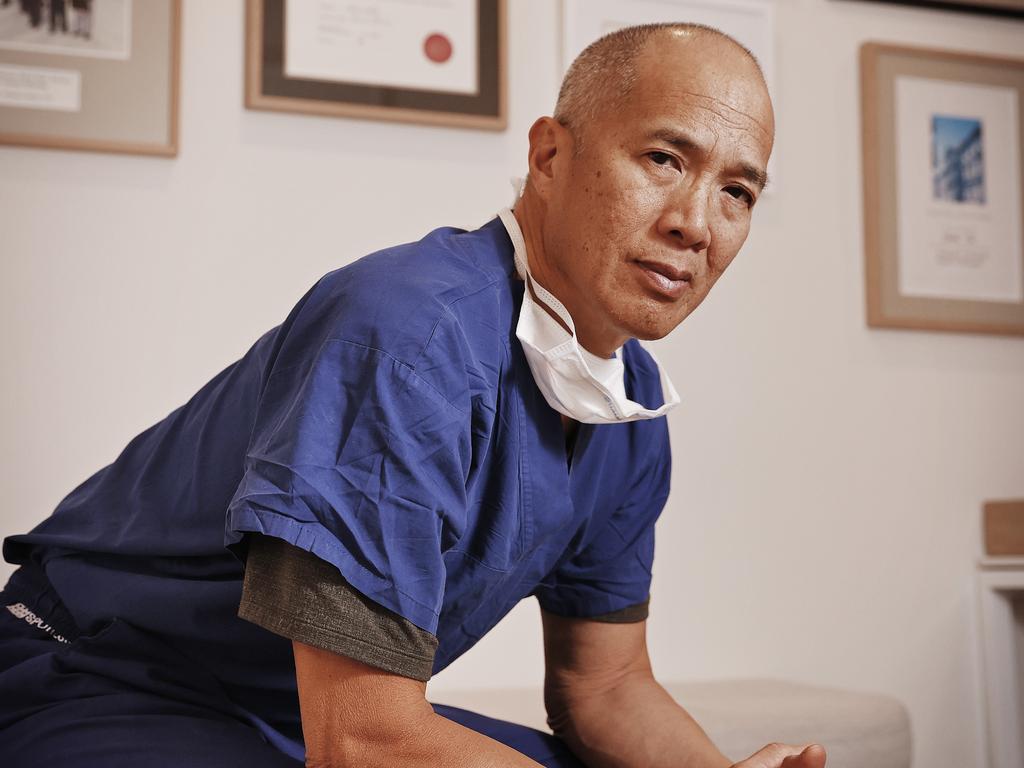
Given the hospital costs alone of surgery in Australia may sometimes exceed $100,000 in the private sector, the added cost of going overseas would be prohibitive.
“It’s true. I have offered to waive my fee for some of these desperate patients, but the extra financial burden of travelling and staying in a foreign country may be too much for many,” Dr Teo said.
Ray Cox has been alive 10 months longer than anyone said was possible – except Dr Teo.
“I had the worst of the worst brain cancer and there was no way they could help me. They all said it was a death sentence,” Mr Cox said of his diagnosis of a thalamic GBM in May last year.
Thankfully, it was just before the NSW Medical Council placed restrictions on Dr Teo.
“Charlie was the only one. He said you might die tomorrow morning on the operating table and it’s a very risky operation but here I am today living life to the fullest. Everyone else said I had weeks to live. I have been alive for 10 months. It’s a miracle, Dr Teo is a miracle.”
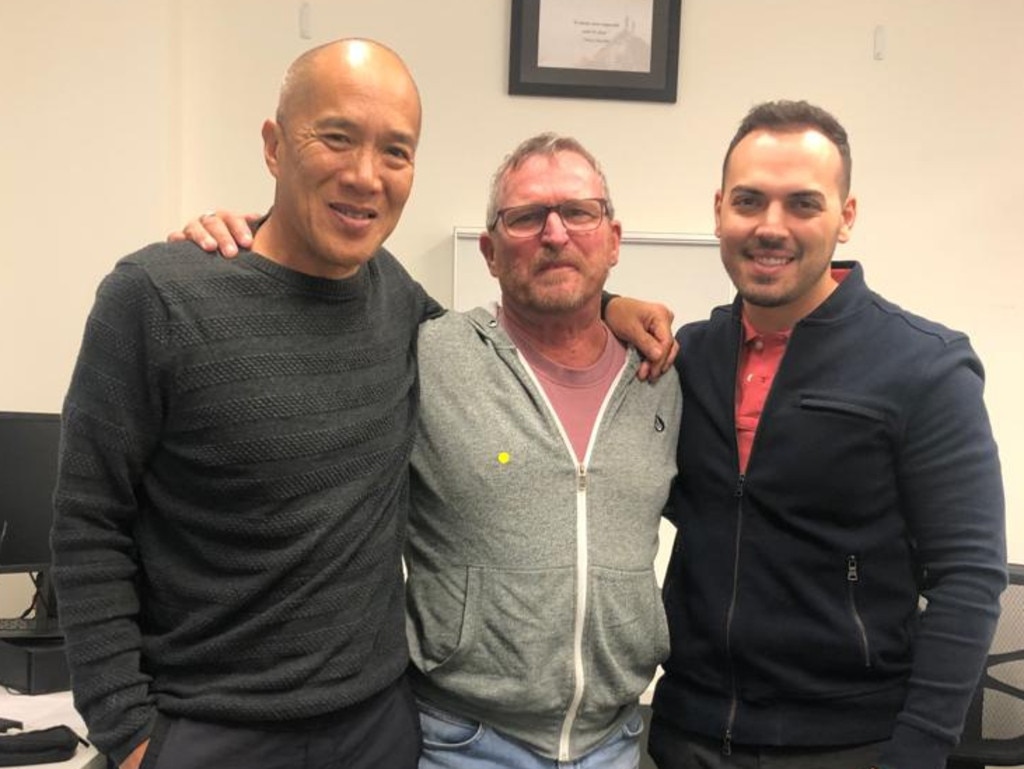
Mr Cox, from Lennox Head, fears that should his cancer return, there may be no one in Australia prepared to perform repeat surgery on his glioblastoma (GBM), also referred to as a grade IV astrocytoma, a fast-growing and aggressive brain tumour.
“If I had to, I would go overseas to find Charlie, I would have to, but we couldn’t really afford it really. But we can’t do it without him. There is no one else, there is only him.”
When Sydney dad Scott O’Brien was told his daughter Natalie had a death sentence by at least a dozen surgeons, the news was unacceptable.
Multiple neurosurgeons told him there was no hope of a cure, so he turned to Dr Teo.
“My daughter Natalie had a cystic tumour in her pineal area and we were told by all the doctors we saw the outcome would be death,” Mr O’Brien said.
“It was clear cut, they all said we can’t get to it because it’s in the middle of the head directly under the brain, we just can’t get to it.”
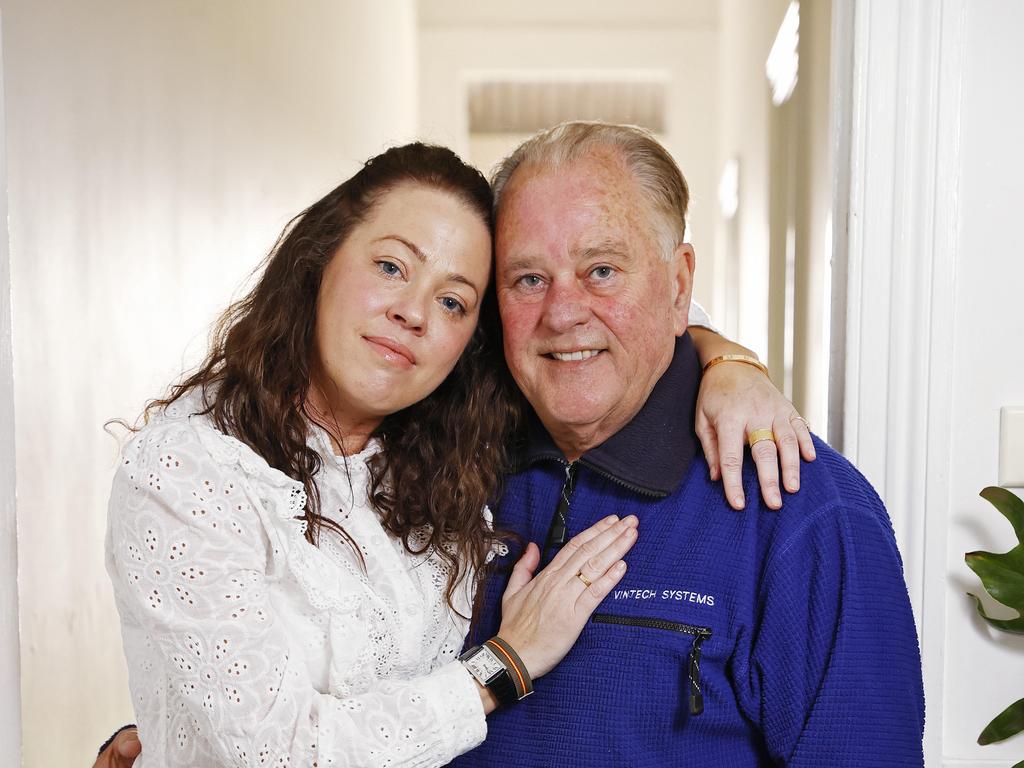
Dr Teo agreed to see the O’Briens in his Sydney rooms.
“He told us the whole truth. He even asked to record the interview because he said ‘I’m going to be talking for a long time,” Mr O’Brien said.
“Record this conversation so you can go away because the risk factors are severe, you could die on the table, you could be a vegetable. He told us everything, he was straight up. We went home, listened and replayed it quite a lot of times and my daughter said ‘I can’t live the way I am and if I don’t have the surgery I’m going to die. I want to do it.”
Dr Teo also told them he was unable to perform the surgery in Australia.
So, Mr O’Brien “found the money like you do when your daughter is dying” to fly to Europe where doctors could perform the risky surgery under Dr Teo’s supervision on July 26 this year.
“I’m hoping it’s a one-off operation,” Mr O’Brien said.
“I hope we only see Charlie at some fundraiser, not again in hospital but I’m devastated to think that not just for us, but for others, he may not be able to help others like he has helped us.
“The average Australian they don’t know what this man does for people, and they don’t realise what this is all doing to him. What I would say to the people who criticise him is, if their child or wife or husband had what my daughter had and got a death sentence, who would they go to? What would they do? I already know the answer: they would come running to Charlie.
“That’s the ridiculous, hypocritical part of all of this. They are trying to prevent me and every other Australian from having the choice. That’s the fact, it’s not hearsay, that’s the fact.”
Dr Teo doesn’t want people to think he is giving up on Australia.
“The hope is that one day soon I’ll be able to provide my surgical services to those in need in Australia,” he said.
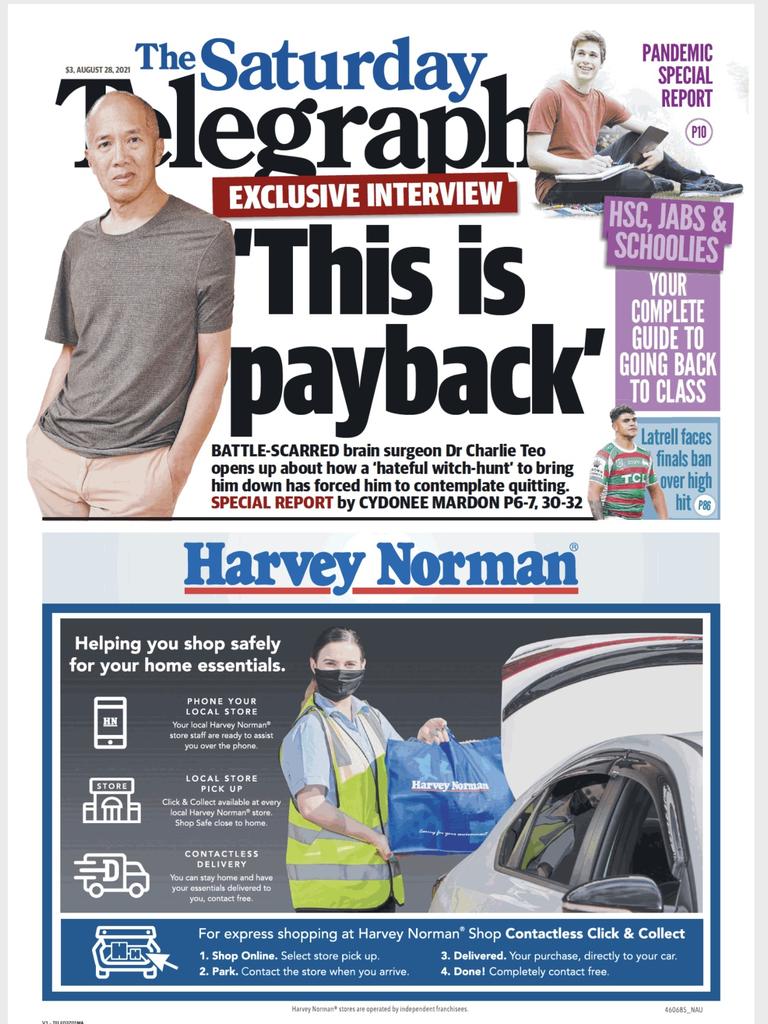
In August last year, the Medical Council imposed a series of conditions on Dr Teo’s practice after complaints about his methods and allegations he gave patients false hope. The hearings also came against a backdrop of media reports criticising everything from his behaviour and his success rates to what he charges patients.
He didn’t want to discuss the three cases brought to the attention of the HCCC that led to the Section 150 tribunal, because two of the files had not been closed. Suffice to say that he remains devastated by these two poor outcomes “despite my best efforts” and acknowledged that “sometimes things don’t always go the way they are intended through no fault of anyone”.
“The essence of all three complaints was that I was misguided in offering surgery to these three patients because others had deemed them inoperable,” he said at the time.
“I think it’s a very sad day for Australian medicine if doctor who are pushing the envelope in accordance with patient wishes are ostracised, vilified and crucified.
“Don’t get me wrong; if you are going to do something that has not been validated in the medical literature, then transparency is paramount, in fact, mandatory. But in all of these three cases the medical literature supported my recommendations to operate.”
The other issue was that of concerns with the pre-operative consent process.
“I am very cognisant of how vulnerable these patients and families are and offer informed consent accordingly.”
After the restrictions were put in place Healthscope, Australia’s only national private hospital operator and healthcare provider with a network of 41 hospitals that service every state and territory, would not renew Dr Teo’s privileges.
“You’ll have to ask Healthscope why they refused to recredential me, but the reason they gave me was that, given the circumstances of professional isolation and media scrutiny, I was now considered too high risk,” he said.
Healthscope said “the restrictions placed on Dr Teo by the Medical Council of Australia meant that it was no longer feasible or practical for Dr Teo to remain accredited to practise at Prince of Wales Private Hospital”.
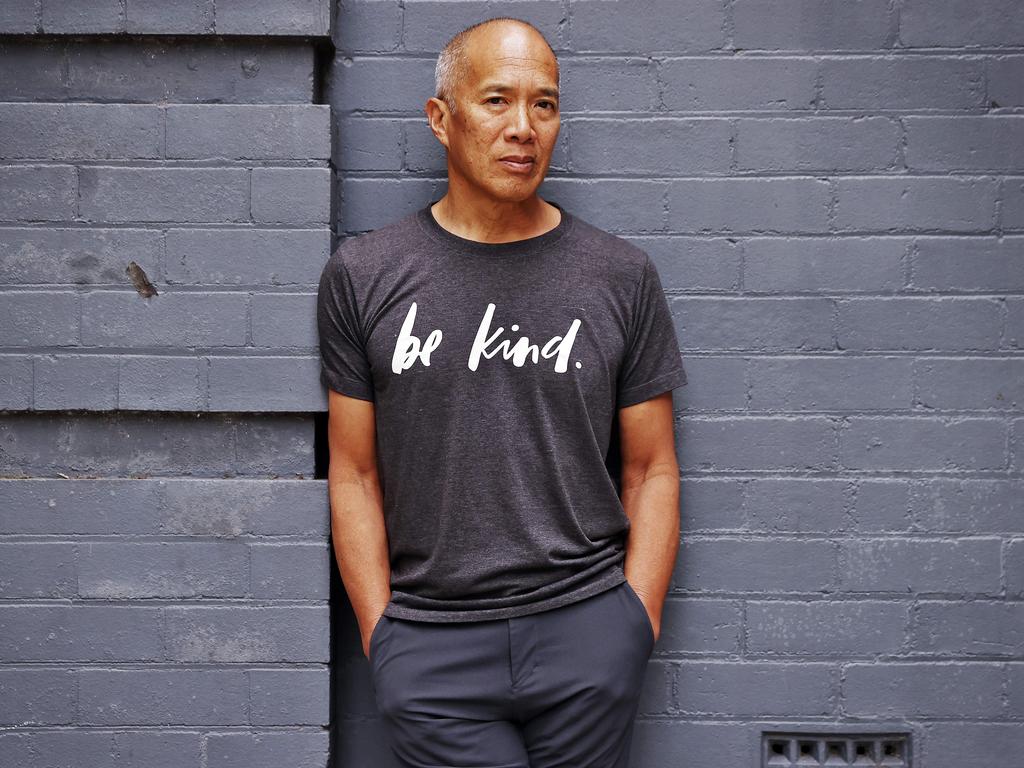
Dr Teo said: “Since then when I have approached many other hospitals and state that I still have a licence to operate, please, can I operate in your hospital? Virtually every hospital has said, ‘Oh, my God, yes, we’d love to have you here,’ but, then when the process progresses to the next step, requiring approval by the respective medical boards ie. the neurosurgeons in those hospitals, communication lines suddenly go quiet.
“When I have approached hospitals that don’t have neurosurgery, they say they would love to have me so I meet all the executives … and as soon as they go to the doctors and medical advisory boards the doctors go ‘no, we don’t want him’ so even hospitals that don’t have neurosurgeons, sadly, have conservative doctors who say no to mitigate risk to themselves and the hospital.”
In the meantime, Dr Teo has been kept busy teaching, lecturing and performing pro bono surgery globally where he is in demand, not just for his innovative surgical techniques but for his reputation for communication with patients and respect for patient autonomy, the very skills the NSW Medical Council have determined he is lacking.





